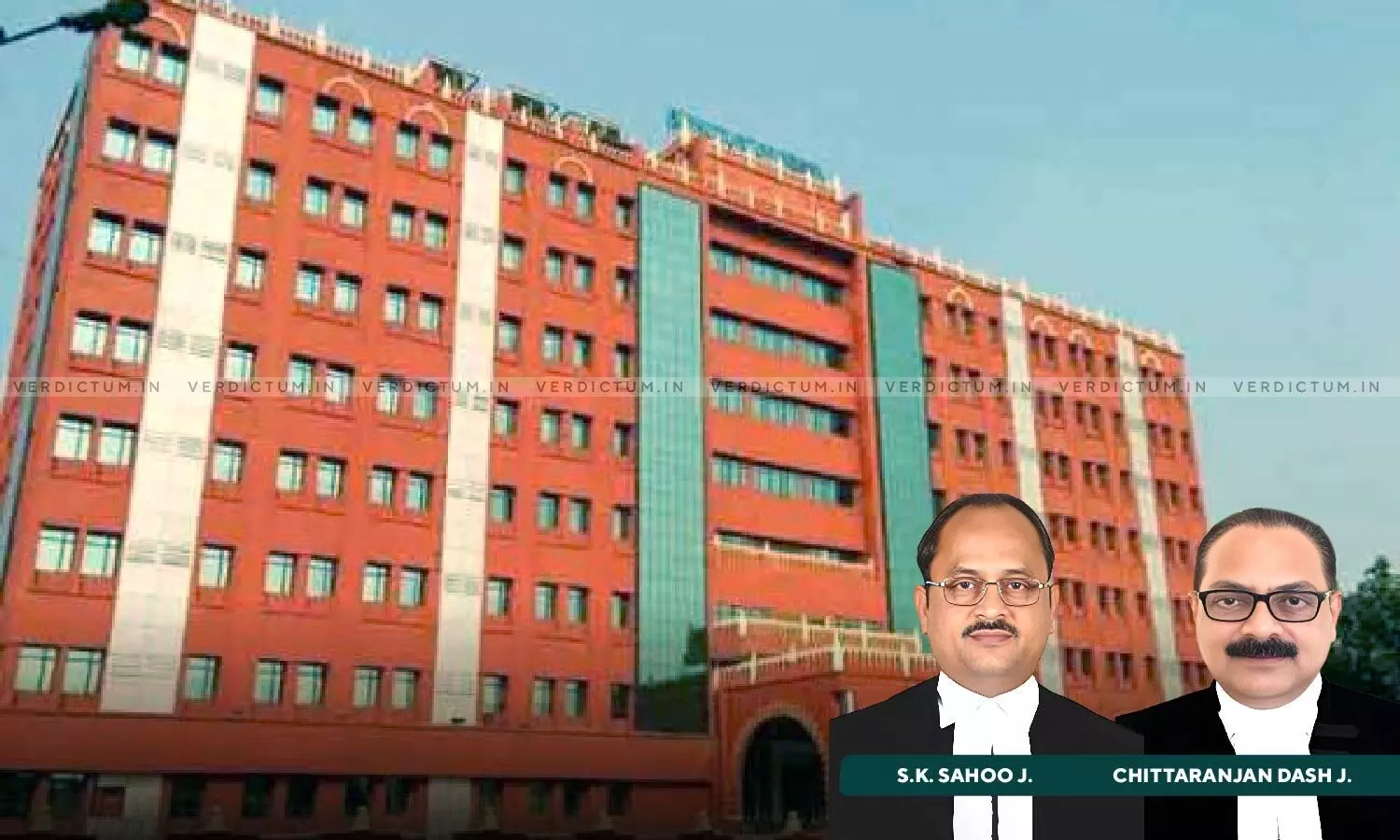
Justice Is Often Metaphorically Termed As ‘Blind’, But Advocates Must Not Dare To Betray Trust Of Court Deeming Judges To Be ‘Sightless’: Orissa HC
 |
|The Orissa High Court remarked that, Justice is often metaphorically termed as blind, but the Court officers must not dare to betray the trust of the Bench deeming the Judges to be sightless.
The Court was dealing with a criminal appeal in a case in which the Advocate filed an Affidavit mentioning that the brother-in-law of the accused handed over the School Transfer Certificate (STC) to him and the same was annexed to the interim application.
A Division Bench of Justice S.K. Sahoo and Justice Chittaranjan Dash observed, “Advocates are the officers of the Court. They are wheels of justice. Administration of justice mostly depends upon the fiduciary relationship shared by the Bar and the Bench. The trust which reposed on the legal professionals by the Court is of utmost good faith. Needless to say, let alone affidavits, the Courts do not think twice before presuming any document filed by an Advocate to be genuine. Justice is often metaphorically termed to be blind, but the officers of Courts must not dare to betray the trust of the Bench deeming the Judges to be sightless.”
The Bench said that the Court officers may not forget that it is this very justice delivery system which provides the Judges with farsightedness and confers extraordinary powers on their shoulders to ensure that blind-eye of the lady of justice does not make the society believe that the entire justice delivery system is visionless.
“Fraud played on this Court by an Advocate or for that matter by even an Advocate’s clerk is a severe form of contemptuous attitude”, it added.
Advocate Nityananda Panda appeared for the appellant while Additional Standing Counsel (ASC) P.B. Tripathy and Advocate Bikash Chandra Parija appeared for the respondent.
In this case, when the appellant’s brother-in-law appeared before the Court on September 3, 2024, he stated before that his mother-in-law handed over the STC to him which he produced before the Advocate. However, in the affidavit, a completely different stand was taken that the STC, which was filed, was not handed over by him to the conducting counsel but he had handed over such certificate to the appellant at the time of ‘Mulakat’ while he was in custody in the year 2018 on the request of his parents-in-laws. It was submitted that his statement made on the affidavit is correct. However, the counsel for the appellant sticked to his earlier version that the appellant’s brother-in-law handed over the STC to him for filing the interim application.
The High Court in view of the above, noted, “In view of the contradictory stand taken by Gania Gagarai when he appeared before this Court on 03.09.2024 and in the affidavit filed today, we would have taken strong action against him but since he has tendered unconditional apology and further stated that his mother has died two days back, in support of which, an affidavit is filed today by Gania Gagarai and further submitted that he is to perform the obsequies ceremony and that he has already remained in custody since 03.09.2024, taking a lenient view, we do not intend to proceed further with this contempt proceeding and accordingly, the same is dropped.”
The Court emphasised that, punishing a person for contempt of Court is a drastic step and normally such action should not be taken but at the same time, it is not only the power but also the duty of the Court to uphold and maintain the dignity of Courts and majesty of law which may call for such extreme step. The Court added that, if for proper administration of justice, it is required to take strict view, it should not hesitate in wielding the potent weapon of contempt.
“… we want to make it clear that sometimes forged medical documents, forged date of birth certificates and forged school certificates are being filed before this Court in different cases to get relief and most of the times, the Advocate’s Clerks swear affidavit in filing such documents for which they are made accountable in case of any forgery. It has also been brought to the notice of this Court that Advocate’s Clerk by reposing faith and trust on their advocates, swear affidavits and the Court trusts on the Advocates, who are the Officers of the Court and a duty is cast upon them to bring truth to this Court”, it further said.
The Court also enunciated that, it is the responsibility of the Advocate and the Advocate’s clerks to bring correct state of affairs before the Court and their attempt should not be to misguide the Court in any manner and if the Advocate or the Advocate’s Clerk has no personal knowledge about a particular document which is produced by a party, then it is to be verified properly before bringing the same on record and it is also better to ask the concerned party to swear the affidavit.
“Despite of such guidelines, Mr. Danardan Sethi, Advocate's Clerk has sworn the affidavit. Furthermore, Mr. Nityananda Panda, Advocate did not think it proper to mention the source of the document he sought to rely upon, i.e. the S.T.C. This omission on the part of the Advocate was indeed the root cause which ultimately led to this proceeding which could have been easily avoided”, it concluded.
Accordingly, the High Court dismissed the interim application since the relief sought for was based on a forged document.
Cause Title- Jata @ Sanatan Hessa v. State of Odisha